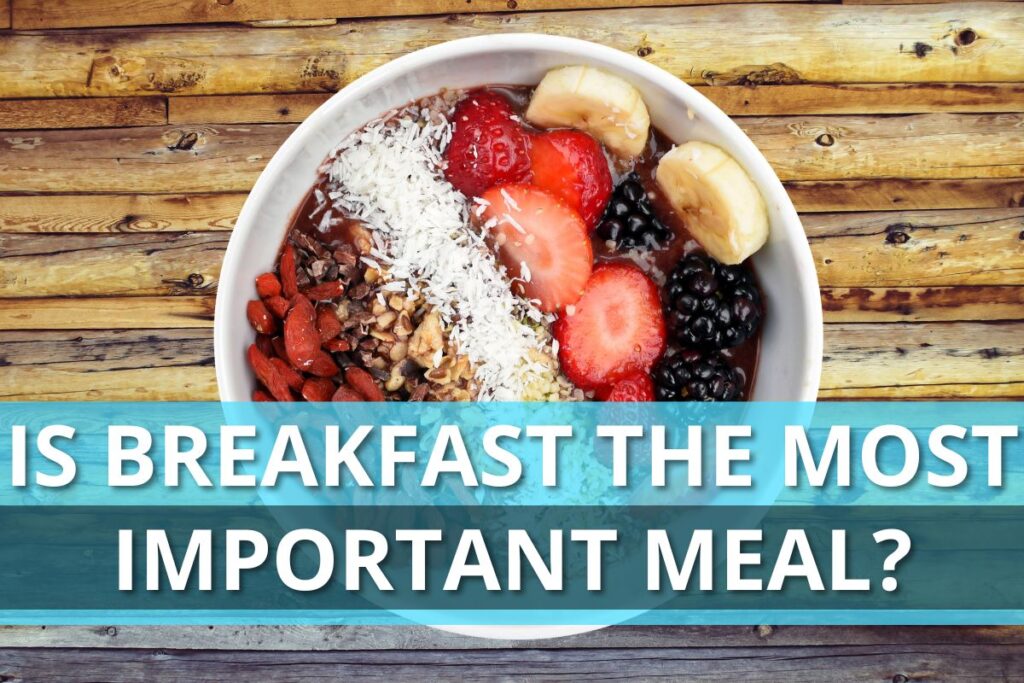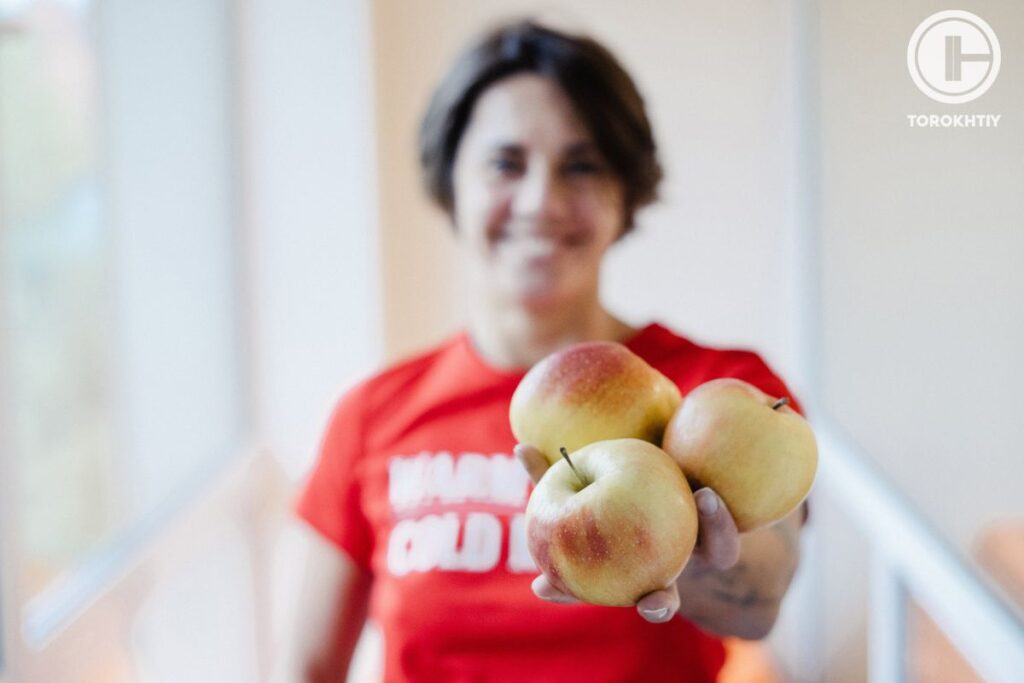Is Breakfast The Most Important Meal?
Author:
Unlock your full potential by engaging with our experts and community! Have questions about your fitness journey or looking for expert advice on weightlifting techniques? Don’t hesitate — leave a comment below and Sergii Putsov will provide a personalized answer and insights to help you reach your goals.
Torokhtiy is reader-supported. Some links are affiliate links, and we may earn a commission at no extra cost to you. See our disclosure page for details.

It is quite common to hear the categorical statement claiming that breakfast is the most important meal of the day. Skipping breakfast will surely reduce your workout working capacity. But is this really so? I have my own view on this case, and I’m about to share it with you in this article. Let’s get straight to the point.
Breakfast, calories and macronutrients
One of the worst things about skipping breakfast is possible difficulties obtaining a sufficient amount of calories, proteins, fats and carbohydrates. This is particularly true for large men-athletes that have a very high demand for calories and macronutrients.
Without breakfast, it is physically hard to eat 3500 kcal throughout the day. In such a case you will have to overeat during all other meal intakes. But it remains individual as having 1200-1500 kcal per one meal intake is not a big deal for some people. I won’t be excessively categorical here.
About glycogen
I shall remind you that the liver and skeletal muscles are the main glycogen storage in our body. Thus liver deposits from 80 to 150 grams of glycogen (depends on its size as big men have bigger organs). On average there are 400-500 grams of glycogen stored in skeletal muscles, but muscles of especially large athletes can accommodate up to 700 grams of glycogen.
You may like it:
Why am I writing this? The point is that liver glycogen is consumed during the night sleep (and long periods without food). Liver glycogen storage depletes after 12-18 hours of starvation. Surely we don’t sleep so much, but the night bedtime is enough to spend half of the liver glycogen to maintain the glucose level in the blood.
But the story is different with skeletal muscles, as their glycogen is spent autonomously to provide the work of these muscles. That’s why this storage remains intact when you wake up if it was full prior to your sleep.

The thing is that if we haven’t consumed carbohydrates before our morning workout then our workability and well-being may suffer. Partial or complete depletion of liver glycogen will negatively impact our physical capacities during the workout sessions despite the muscle glycogen is full. The significance of liver glycogen will grow as the muscle glycogen expends.
Moreover, carbohydrates in the morning are essential for the central nervous system. This system (including the brain) is actively involved in the transmission of the new impulses and muscle contraction as well as motor coordination support. As we all know the brain needs glucose so you can gladden it with a portion of carbohydrates in the morning. Breakfast is indeed a very important meal, in this regard.
What to eat for breakfast before the workout
I have already mentioned that the bigger the gaps between meals and workouts are, the more complex and nourishing they should be. When I say “complex” I mean not only protein and carbohydrates but also fats and a fair amount of fiber.
For example, if there are 2,5 hours between breakfast and workout you can consume any protein source (including meat and fish), complex carbohydrates (cereals), vegetables (fiber), fats (from egg yolks, avocado, fatty fish and nuts).
If there is less than an hour, you’d better minimize the consumption of vegetables and fatty products and pick up only easily digestible sources of proteins and carbohydrates. It is better to stay away from big amounts of fats and fibers before the workout because they slow down digestion and may cause bloating, nausea and abdominal discomfort during the workout.
Examples of easily digestible breakfast:
- Protein shake + berries or a banana;
- A banana + high protein (greek) yogurt;
- Egg yolks + bread (not whole-grain).

2-3 hours between breakfast and workout provide much wider options. You can have an utterly nourishing breakfast:
- Brown rice + cod + vegetables + nuts + an orange;
- Whole grain bread + lightly salted salmon + vegetables + dates;
- Pasta + chicken + salad with olive oil + kiwi;
- Whole grain bread with vegetables + eggs (with yolks) + a big banana.
Skipping breakfast in the context of evening workouts
Well, this is a different case. Your physical working capacity will not be significantly affected If you are skipping your breakfast but working out only in the evening. But on the condition that you will have 2-3 full-fledged meal intakes rich in carbohydrates and protein before a workout.
But breakfast skipping may lead to a general calorific reduction of the whole meal plan if we talk about long-term adaptive changes as a response to training stimuli (strength, muscle and strength endurance growths). It means that the amount of proteins and carbohydrates will also be reduced which may result in the loss of muscle mass and other unwanted effects.

The absence of breakfast, in such a context, will be harmful even if your workouts are scheduled for the evening time due to insufficiency of calories, proteins, carbohydrates and fats.
Final recommendations
As I don’t like to be categorical I will provide you the following recommendations concerning breakfast:
- If you don’t like or just can’t eat in the morning (nausea, for example), don’t force yourself;
- When in doubts whether to have or not to have breakfast, choose to have one;
- If you can’t workout to the full with no breakfast then you definitely must have it;
- If you’re aimed at getting the muscle mass and skipping your breakfast momentarily leads to a weight loss, you must have breakfast;
- Breakfast is necessary if you can’t reach the calorie, proteins, fats, carbohydrates levels;
- If skipped breakfast doesn’t affect your well-being or physical working capacity during the morning workouts you can continue skipping it. But only on the condition that you consume the necessary amount of calories, proteins, carbohydrates and fats;
- Skipping breakfast leads to total calorie intake reduction which may help to reduce your body fat level. But in this case, you should thoroughly plan your menu to avoid the negative impact upon your physical capacity.
As you see, breakfast is vital for some and unnecessary for others. We’re all different, so are our goals, and that’s why there is no unified approach to this question.
Related articles:
You might be interested in:
Why Trust Us?
With over 20 years in Olympic weightlifting, strength training, nutrition coaching, and general fitness our team does its best to provide the audience with ultimate support and meet the needs and requirements of advanced athletes and professional lifters, as well as people who strive to open new opportunities and develop their physical capabilities with us.
By trusting the recommendations of our certified experts in coaching, nutrition, and sports training programming, as well as scientific consultants, and physiotherapists, we provide you with thorough, well-considered, and scientifically proven content. All the information given in the articles concerning workout programming, separate exercises, and athletic performance, in general, is based on verified data.
The product testing process is described in more detail here.
Author: Sergii Putsov
Head of Sport Science, PhD
Best Results: Snatch – 165 kg,
C&J – 200 kg
Sergii Putsov, Ph.D., is a former professional weightlifter and National team member, achieving multiple medals in the 94 kg weight category at national competitions. With a Master’s degree in “Olympic & Professional Sport Training” and a Sport Science Ph.D. from the International Olympic Academy, Greece, Sergii now leads as the Head of Sport Science. He specializes in designing training programs, writing insightful blog articles, providing live commentary at international weightlifting events, and conducting educational seminars worldwide alongside Olympic weightlifting expert Oleksiy Torokhtiy.




Still have questions after reading our article? Unlock your full potential by engaging with our experts and community! Don’t hesitate — leave a comment below and Sergii Putsov will provide a personalized answer and insights to help you reach your goals.